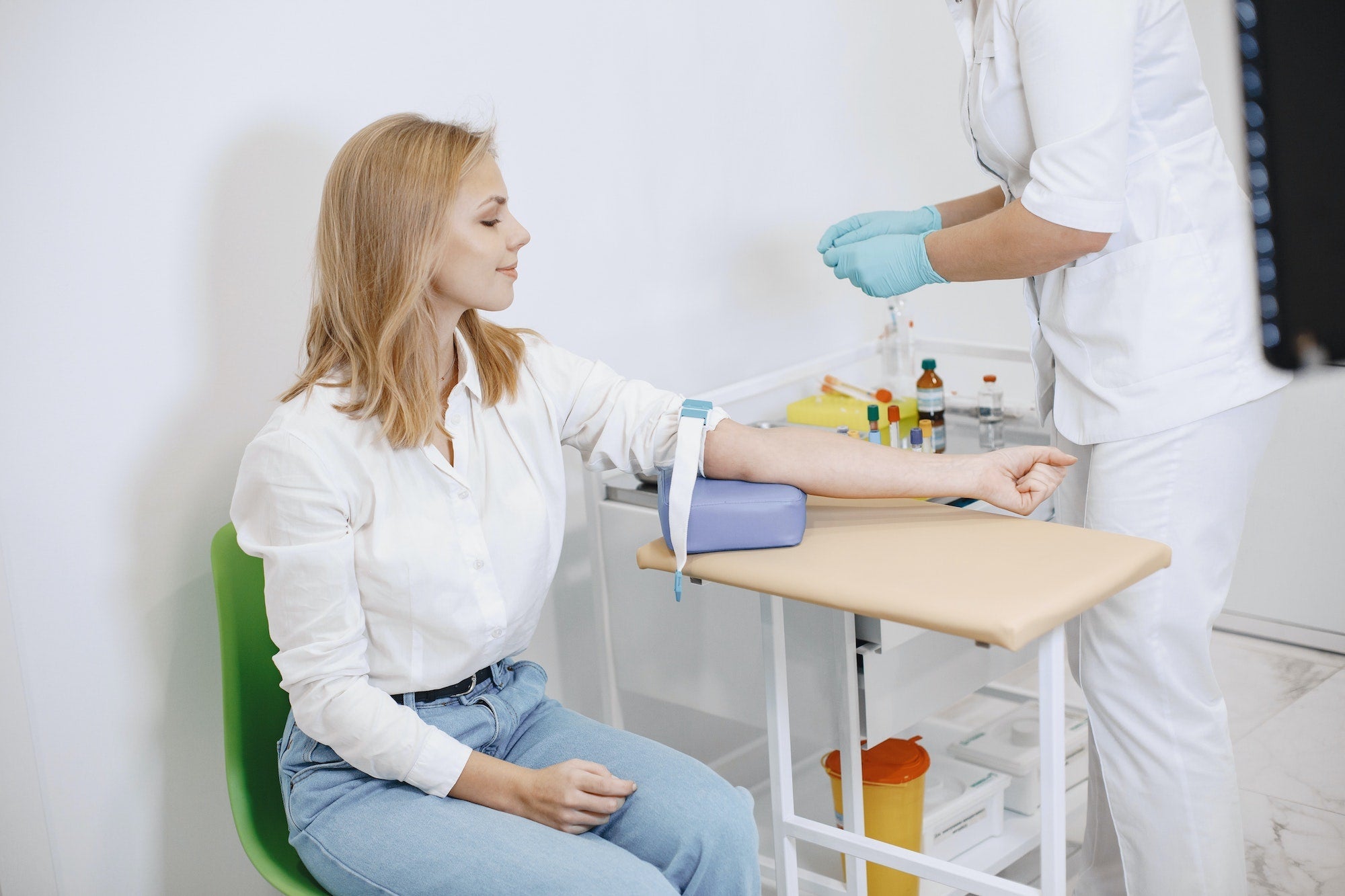No one likes feeling bloated after eating - that swollen feeling in your stomach like you might never be able to put on jeans again. Even worse is having bloated abs all the time, even when you haven’t just overindulged in a big meal. Certain triggers, like PMS, indigestion, bowel disorders, or fluid retention, can make bloating worse. Some foods make you bloated, while others will help mitigate it.
While there is no one solution for getting rid of bloating immediately, there are certain home remedies for bloating and supplements that can help you eliminate bloating for good. These ten bloating remedies will help reduce stomach swelling and make your digestive process smoother and less stressful.
How to Relieve Bloating Fast: 10 Tips

Eat Foods to Reduce Bloating
While some high-sodium foods can cause bloating, other foods will help you battle it. Eating more foods with high water content, like zucchini and celery, will help your body flush out your digestive tract, making your stomach appear slimmer. Cucumbers are another great choice to battle bloat. In addition to their high water content, they also contain quercetin, a natural antioxidant that reduces swelling and inflammation. Foods that are high in potassium, like bananas and tomatoes, help regulate your fluid levels and reduce bloating and cramping.
Monitor Your Fiber Intake
Incorporating more fiber into your diet is usually a great way to supercharge your digestive system and keep your bowel movements regular. However, getting too much fiber can make you bloated and gassy. Because it’s more difficult for your body to digest, consuming too much fiber quickly means some of it will be converted into a gas by-product by the bacteria in your colon, making you feel swollen.
Try Cooking with Spices Instead of Salt
Sodium is one of the worst offenders when it comes to water retention, which is usually what causes bloating after eating. For how to get rid of bloating fast, try tackling the source of the problem by swapping out salt for spices in your cooking. Adding cayenne pepper or turmeric stimulates digestion, reduces swelling, eases gas, and can reduce cramping. Ginger is another potent anti-inflammatory that you can incorporate into your meals. Studies have found that eating ginger promotes “gastric emptying,” keeping your bowel movements regular and your stomach flat.

Try Probiotics
For some people, consuming dairy can cause bloating. However, if you don’t have an adverse reaction to lactose, then eating probiotic yogurt can help reduce stomach bloat. Choose varieties labeled “live or active cultures” and “no added sugar” for the maximum benefit. If you don’t like the taste on its own, you can also try swapping plain yogurt for mayonnaise or sour cream in recipes as an easy way to introduce good bacteria into your diet.
Revive Women’s Health Supplement
Some bloating, especially when accompanied by acne, may be caused by hormonal fluctuations. These fluctuations may be cyclical or influenced by birth control, dieting, and other environmental factors. Revive’s Women’s Health formula promotes healthy estrogen metabolism, supports healthy hormone levels and can minimize bloating and other unwanted side effects of hormone fluctuation.
Drink Enough Water
It might seem counterintuitive. Still, sometimes your body may be bloating because of dehydration, cueing it to retain water and because of this, staying hydrated is one of the keys to reducing bloat. Drinking warm water with lemon may be especially helpful. Lemons are a gentle diuretic and have a slight laxative effect, so adding them to water will help your body reduce its overall salt content to beat the bloat. If lemons are too acidic, drinking mint tea or water with an infusion of mint leaves and cucumber is another great way to reduce bloating, as mint naturally calms an unsettled stomach.
Cut Out Carbonation
If you’re turning to carbonated drinks like seltzer water to stay hydrated, you may be doing more harm than good. Studies have shown that drinking carbonated beverages can massively contribute to stomach bloat. The small air pockets in carbonated drinks have to go somewhere. Filling up your system with extra air isn’t necessarily bad for you, but it can make your stomach feel unsettled and cause excess gas or bloating.
Try a Stomach Massage
Bloating often is accompanied by cramping or other stomach discomforts. When you’re looking for how to relieve particularly uncomfortable bloating, you might turn to a 2-minute stomach massage. Lying on your back on a yoga mat or other comfortable surface, bring your knees up so that your feet are on the floor. With both hands flat on your stomach, massage gently in clockwise, then counter-clockwise circles.
Move from the abdomen’s left side to the right, working your way up to just under the ribcage. Use gentle pressure, giving extra care to any tender spots. Make sure to breathe deeply and intentionally throughout. A stomach massage will help relieve any tension in your abdomen and stimulate parts of your digestive tract to help you pass whatever is causing the swelling.
Avoid Chewing Gum
Many people swallow extra air when they chew gum, leading to bloating. Similarly, dieticians recommend avoiding straws and sipping directly from the cup to avoid taking in the additional air that can cause bloating.
Exercise

Even though you probably won’t want to lace up your sneakers and work up a sweat when you feel bloated, getting some gentle exercise can help relieve bloating. Try for some gentle cardio, like going on a walk or a light jog to help expel excess gas and stimulate digestion. Yoga poses that stretch the abdominal muscles, like cat-cow movements, are also helpful to beat stomach bloat.
Takeaway
By changing your diet, staying hydrated, and adding helpful supplements and habits into your routine, you can reduce bloating for good. Discover a slimmed-down stomach and escape digestive discomfort by following these techniques to look and feel your best.
The information being presented in this blog is intended to be used as educational or resource information only. It is not intended to be a substitute for medical advice from your healthcare provider. This content should not be used for the diagnosis or treatment of any medical condition. If you have any questions or concerns about your health, please contact your healthcare provider. You should call 911 for all medical emergencies. Revive MD is not liable for any advice or information provided on this blog, which advice or information is provided on an “as-is” basis, and assumes no liability for diagnosis, treatment, decisions, or actions made in reliance upon any advice or information contained on this blog. No warranties, express or implied, are made on the information that is provided.





 Liver & Detox Support
Liver & Detox Support
 Gut & Digestive Health
Gut & Digestive Health
 Hormones, Stress & Metabolism
Hormones, Stress & Metabolism
 Sleep & Relaxation
Sleep & Relaxation
 Heart, Brain & Immune Health
Heart, Brain & Immune Health


